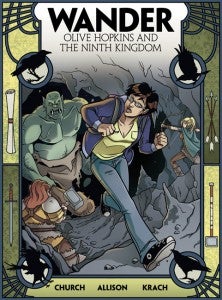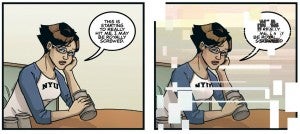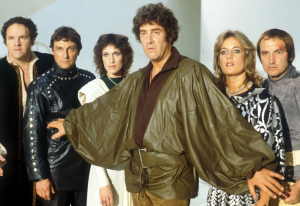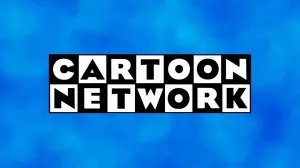The debut issue of Wander: Olive Hopkins and the Ninth Kingdom is the first one that Monkeybrain has published which feels as though it’s not totally dissimilar to the rest of the existing line, which is both a bit of a liability (in that it draws unnecessary comparisons) and an asset (in that it helps Monkeybrain establish a voice of its own, which up until now has been “whatever occurs to us to publish.”The idea of a young witch-in-training who moves between dimensions but can’t get home when she wants to, the title may feel at the start a bit like it’s redundant if you’ve already read Amelia Cole and the Unknown World #1. That’s where the similarities end, though, and so to say it’s “the same thing” would be like claiming that Batman and Deathstroke were materially the same book.Wander: Olive Hopkins and the Ninth Kingdom #1 features a girl who lives in the modern world inexplicably thrust into not only a magical dimension of orcs and goblins (she can’t tell the two apart), but one that seems to take place in the past, where the characters have no idea what she’s babbling about when she brings up McSorley’s (as a onetime New York resident, though, just the reference made me miss the place).Actually, the very New York feel of the book is worth mentioning alone–it’s as New York as any Marvel title I’ve ever read, even though it doesn’t take place principally there and the only images of New York featured in the book were very basic shots that could be any city, anywhere, if the author hadn’t identified it as being New York’s Lower East Side. There are flip, off-the-cuff references and the kind of insidespeak that New Yorkers have, where they just expect you to understand that reference to McSorley’s, for instance. It gave the character a very definite voice, particularly because when I lived there, I was (like Olive) in my mid-to-late-twenties and she sounds just like many of my friends did.Church’s script is crisp and full of personality, and Allison’s Art is stylized to the book in a way that’s perfect; give me this premise and I wouldn’t have picked this look, but an issue in, I’m sold that you couldn’t get anyone else to do it as well. The simple art style, which feels familiar and cartoony, links with a page layout that rarely strays from a six-panel grid to create something that will read incredibly well either digitally or on in the eventual print collection–and which will be inviting to the non-comics-readers who hopefully wander into a title like this which, for under $2, offers a very accessible story featuring archetypes that work well outside of the mask-and-cape industry.The only place where it felt the series actually lacked was in the colors and letters. Both are perfectly fine, but they have that ineffable feeling of being ever so slightly off. I can’t put my finger on how, but it feels somewhat less exceptional than the rest of the book, and the first few pages in particular it seemed felt very “self-published,” and not necessarily in a good way. Happily, the art and story are good enough that you’re not pulled out of the comic by it and within a couple of pages it transitions from feeling a bit low-budget to feeling more like a style choice. If it is, perhaps it’s the reader and not the book that’s at fault for the criticism.










